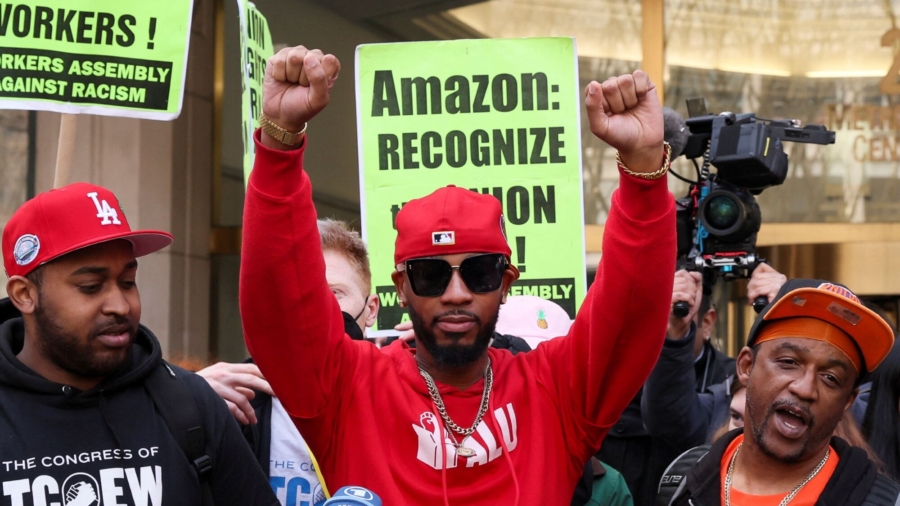A federal judge in Texas has blocked a new rule set out by the National Labor Relations Board (NRLB), which would have facilitated a platform for more unionization by workers employed by big companies.
The rule was set to take effect on Feb. 11 and would have redefined when two companies should be considered “joint employers” in labor negotiations. Initially introduced in 2015 under the Obama administration, it was amended in 2020 under former President Donald Trump.
The 2020 amendment states that a company like McDonald’s isn’t considered a joint employer of most of its workers, as each franchise employs all workers directly. Companies could be considered a joint employers only if they had “substantial direct and immediate control” over employment conditions.
Whereas the new rule, passed by a Democrat-controlled board, would have defined each company as a joint employer if control over at least one condition of employment applied to them, either directly or indirectly.
This would include wages and benefits, hours and scheduling, the assignment of duties, work rules, and hiring.
The NLRB argued a change to the current rule was needed, as it allegedly allowed companies an easy way to bypass negotiations and potential work stoppages.
But critics described the new rule as an attempt by the Biden administration to undermine independent business owners.
In November, the NRLB was sued by the U.S. Chamber of Commerce and several other business groups in federal court in the Eastern District of Texas.
Among the plaintiffs were the American Hotel and Lodging Association, the International Franchise Association, and the National Retail Federation, all of whom argued the new rule should be blocked because it would redefine the established criteria so that companies could be held liable for workers they don’t employ at workplaces they don’t own.
U.S. District Court Judge J. Campbell Barker granted the plaintiffs’ motion for a summary judgment on March 8. In his decision, he said that the NLRB’s new rule would be “contrary to law” and described the way it would alter the existing rule as “arbitrary and capricious.”
Barker added that establishing an array of new conditions to define whether a company meets the standard of a joint employer would be overreaching “the bounds of the common law.”
The NRLB issued a statement the day after the ruling, saying it will review the court’s decision and its approach to future steps in the case.
“The District Court’s decision to vacate the Board’s rule is a disappointing setback, but is not the last word on our efforts to return our joint-employer standard to the common law principles that have been endorsed by other courts,” said Lauren McFerran, the NLRB’s chairman.
The lawsuit, however, is only one of the NRLB’s current woes. The agency received considerable backlash from companies including SpaceX, Amazon, and Trader Joe’s, which argued in a filing last month that the board’s enforcement procedures are unconstitutional.
The companies said that they all faced complaints over violation of federal labor law in regards to unionization and employment rights within their business structure, spearheaded by the NLRB’s general counsel.
The case could land before the Supreme Court, according to a union attorney.
Reuters and the Associated Press contributed to this article.


